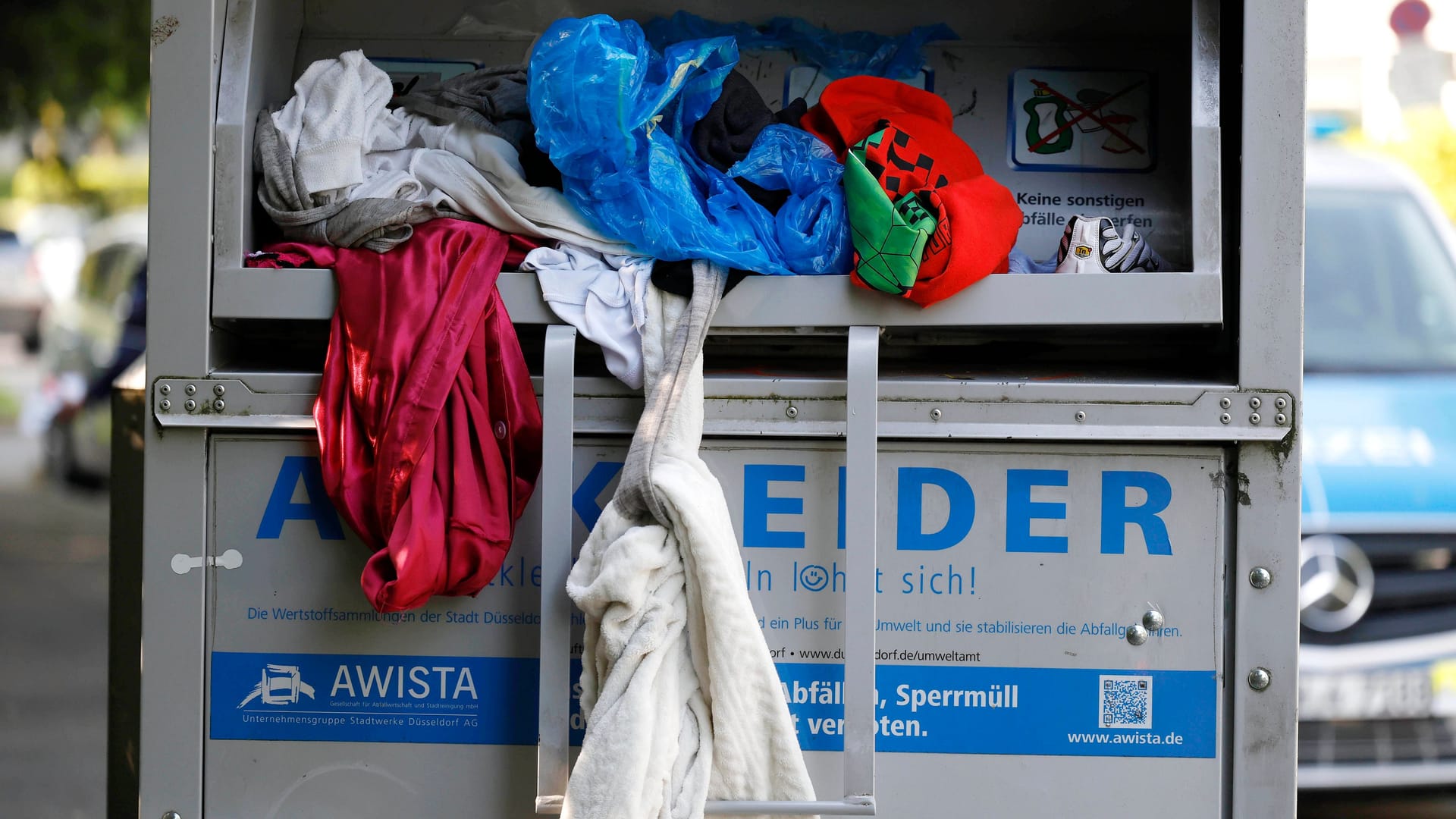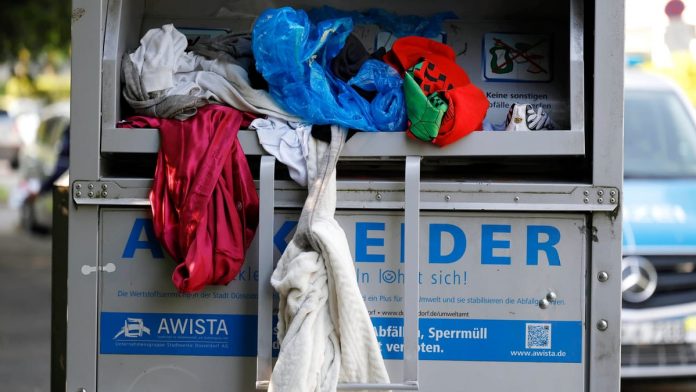EU-wide law
Disposing of old clothes: New rules from 2025
Updated 12/10/2024Reading time: 2 minutes

From 2025, new rules for the disposal of old textiles will apply in the EU. These are intended to achieve a better recycling rate.
Faded T-shirts, jeans that are too small or inherited but unwanted towels from your mother-in-law: these and similar textiles are disposed of at the latest when the closet is cleaned or cleared out – usually in the old clothing container or in the residual waste bin. According to the law applicable across Europe, something should now change here.
From January 1st, 2025 you have to all Old textiles are collected. Specifically, it means that you can no longer put them in the used clothing container or You can throw them in the residual waste bin: From New Year's Day, you can only dispose of old textiles in the old clothing container. Even if they have (moth) holes, are worn out, and in short are no longer wearable.
The new regulation applies to discarded clothing as well as bed linen, towels, curtains and other everyday textiles.
However, according to “Öko-Test”, what applies to heavily soiled textiles has not yet been conclusively clarified. So that they do not have a negative impact on recycling, in Austria, for example, they should continue to be disposed of in the residual waste bin.
The EU has adjusted the rules for the disposal of used clothing so that more textiles are recycled and not burned unused in waste incineration plants. Theoretically, new clothes could then be made from old clothes using the right machines. The technology behind it is not yet fully developed. Until then, the unusable T-shirts, pants and socks will be processed into cleaning rags or insulation materials. A circular economy should be created in which all textile fibers are processed or recycled for as long as possible.
Since the clothing industry is considered one of the biggest environmental and climate offenders, the tightening of disposal regulations is an important contribution to environmental protection for the EU. Because what many people don't know is that the clothing industry causes more greenhouse gases than all international flights and ships combined.
It is currently not known whether people who dispose of their used clothing in the residual waste bin will have to pay a fine or whether their offense will be punished in another way – for example by not emptying the bin.


